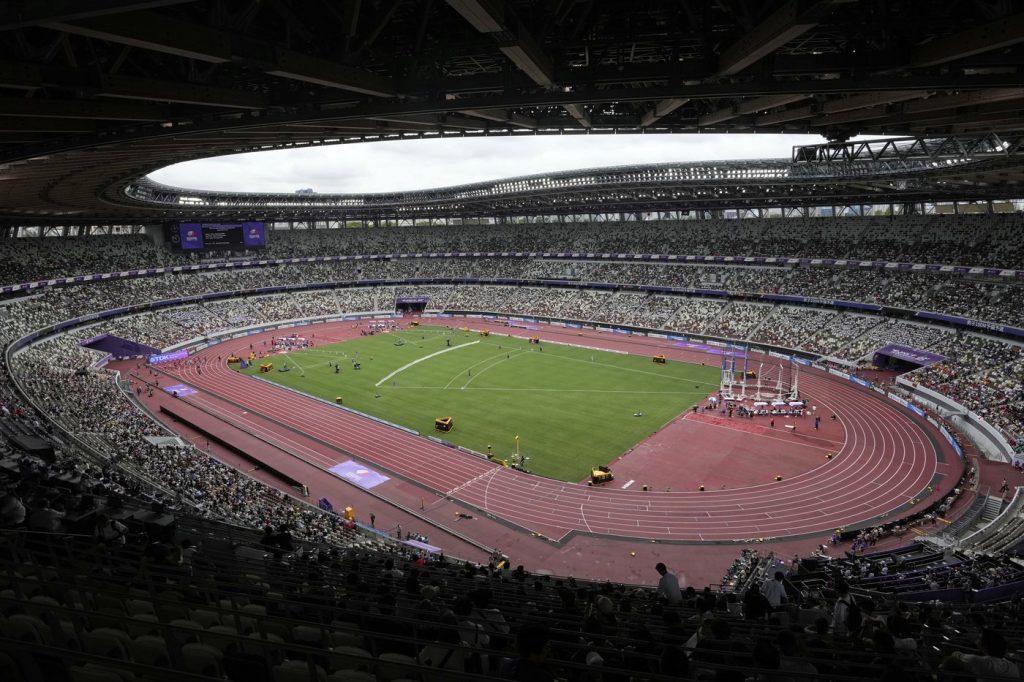TOKYO (AP) — In the 1980s, a woman whose genetic test results led to a significant shift in sports policies expressed profound sadness over the impact of that test on her life. The man who discovered the gene related to this test described the recent revival of gene testing for female athletes as surprising and misguided.
This year, World Athletics implemented a significant policy change, reinstating the SRY gene test that detects the presence of the 'Y' chromosome in athletes wishing to compete in the female category. All female athletes had to submit to this test by September 1 ahead of the world championships that began in Tokyo on September 13, 2025. The federation framed the test as a necessary measure to maintain the integrity of women’s sports, according to its president, Seb Coe.
However, this change faced immediate challenges. Athletes from France encountered difficulties in meeting the testing deadline due to a national ban on such screenings for non-medical purposes. Many were compelled to have the tests conducted at training sites outside their country. A day before the championships, World Athletics announced that approximately 95% of the female athletes set to compete had completed the test, although confidentiality rules made it impossible to ascertain who had not taken it or if anyone had been deemed ineligible.
Issues with genetic testing in sports date back several decades, with one notable case involving Spanish hurdler María José Martínez-Patiño. In a 2005 essay, she recounted passing her first gender test in 1983, receiving a "Certificate of Femininity." However, in 1985, after forgetting the certificate for a competition, she underwent further testing that returned inconclusive results. She was advised to feign an injury to explain her absence, leading to feelings of isolation and sadness. Ultimately, it was revealed that Martínez-Patiño had androgen insensitivity, meaning her body did not respond to testosterone despite carrying a 'Y' chromosome.
The trauma Martínez-Patiño experienced prompted medical experts to persuade the International Olympic Committee and other sports federations to abandon genetic testing, which had been eliminated before the 2000 Sydney Olympics. Andrew Sinclair, the scientist who identified the gene associated with the 'Y' chromosome, highlighted shortcomings of the SRY test in a recent essay, including its ineffectiveness in detecting conditions like Martínez-Patiño's androgen insensitivity. Although World Athletics has made exceptions for athletes with Complete Androgen Insensitivity Syndrome, Sinclair emphasized that the test should not be used to exclude women from competition given its numerous potential inaccuracies.
Keen observers like Madeline Pape, a former elite runner, criticized the decision to revert to outdated testing methods for eligibility in the women’s category. The new guidelines from World Athletics now affect both transgender athletes and those with differences in sex development (DSD), blurring the lines between the two groups and raising questions about fairness and inclusivity.
Despite the controversies, prominent athletes have begun adapting to the new requirements. U.S. 1,500-meter champion Nikki Hiltz, who identifies as transgender and non-binary, expressed reservations about the implications of sex testing but confirmed plans to comply with the new rules. Another athlete, Faith Kipyegon, a three-time Olympic gold medalist, acknowledged the inevitability of the situation, indicating that compliance is necessary in light of the new policies.
As these developments unfold, the issue of gender testing in sports remains contentious. The reinstatement of such tests raises broader social questions about gender, inclusion, and the ongoing struggle for equity in athletic competition. Events like the World Championships act as a microcosm for these larger debates, with transformative implications for female athletes across disciplines.











